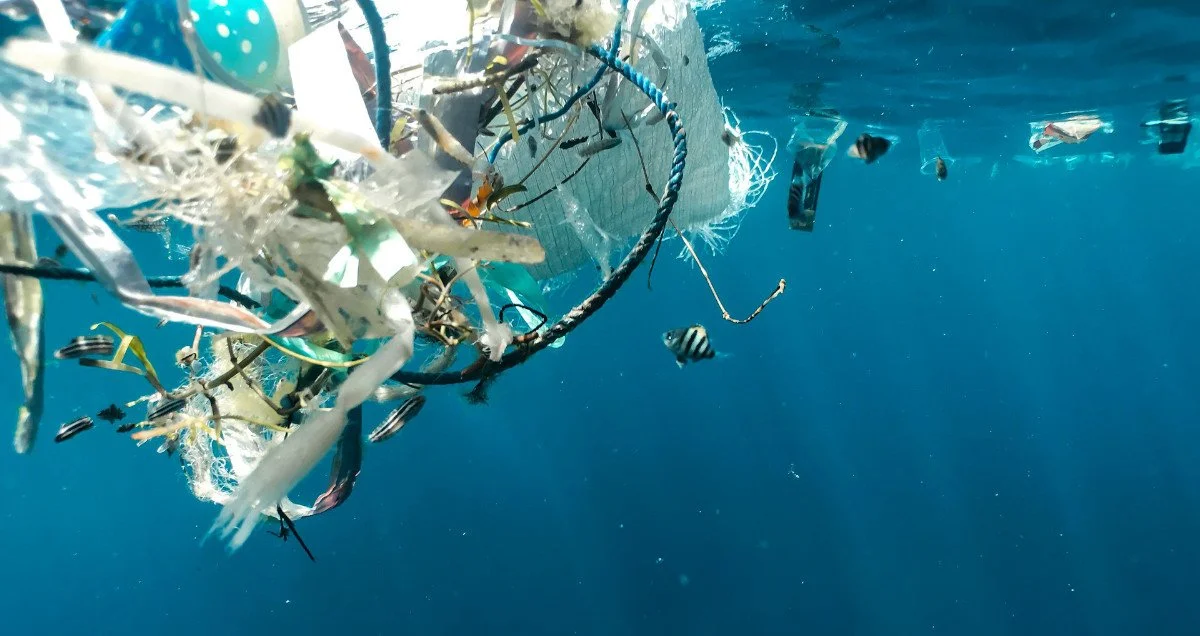We’re (almost) drowning in plastic pollution
Photo by Naja Bertolt Jensen on Unsplash
It’s bad for our own health, as well as the planet. And, now, we are continuing in an on-again-off-again coordinated global effort to try to fix the problem.
What’s happening?
Last week, 179 countries were involved in negotiating a global treaty in Geneva to tackle plastic pollution across production, design, use and waste.
Unfortunately, this has resulted in no treaty agreement, no deal, and no clear path forward.
Why is it a problem now?
The principal driver of this crisis is the accelerating growth in plastic production — from just 2 megatonnes (Mt) in 1950, to 475 Mt in 2022 that is projected to be 1200 Mt by 2060.
Plastic pollution has also worsened, with less than 10% of plastic recycled.
What are the health risks?
Chemicals added to plastics are linked to harms across life stages: reduced foetal growth, developmental & cognitive problems in children, obesity, insulin resistance, hypertension, cardiovascular disease, stroke & some adult cancers. These impacts fall disproportionately upon low-income and at-risk populations.
Research has grown since the 1970s, but lack of transparency about the more than 16,000 chemicals used in plastics hampers regulation and safety assessment. Without regulation, it is almost impossible to effectively manage the risks associated with that many chemicals (many of which are either harmful, or flat-out toxic ☠️).
What’s the fix?
Plastics' harms can be mitigated cost-effectively by evidence-based, transparently tracked, effectively implemented, and adequately financed laws and policies.
Experts’ solutions
Binding global rules to limit harmful plastics and additives, improve product design, and fund safer transitions.
Better chemical transparency and regulation, expanded collection and recycling, plus advanced recycling technologies that convert mixed plastics back into usable feedstock.
Optimum recycling: the 20/60/20 mix. (Courtesy Prof Maschmeyer)
We can make plastic materials more sustainable through deep tech solutions. For example, turning it back into oil. This is one of the solutions for the really difficult to treat soft plastics. The oil goes back to the circular economy to make news plastics, new lubrication oils, bitumen, etc. That is, keeping carbon in the chain and not turning it into CO2.
The 20/60/20 mix
There’s about 15-20% of plastics we can mechanically recycle (milk bottles to milk bottles).
The middle bit – 60% – can be easily turned back to oil,
the last 20% we don’t recycle because the amount of energy/effort has a larger environmental impact than simply burning it to generate power.
What you can do
Reduce single use plastics: choose reusables (glass, stainless steel).
Avoid heating food in plastic, and limit fatty foods stored in plastic.
Choose products free of known harmful additives when possible.
Recycle correctly & support policies demanding chemical transparency and strong regulation.
Stay informed via reliable public health and scientific sources.
Bottom line
While plastics offer benefits, many additives pose clear health risks. To fix this we need global rules, safer design, transparency and better waste solutions, whilst individuals must make the effort to reduce their exposures now.
Check out Saturday Extra to listen to a discussion about the Geneva Treaty talks. Guests include Lizzie Fuller (one of the co-authors of a report published by the esteemed British medical journal, The Lancet – The Lancet Countdown on health and plastics) and Thomas Maschmeyer (Professor of Chemistry at The University of Sydney).
Next Steps
Call for a quick chat or drop us a line if you’re wanting help your investment options and getting your income more tax-effective.
Background:
Geneva, August 2025. From 5 – 14 August, delegates from around the world will try to finish a global treaty to stop plastic pollution.
There’s more than 3,700 people from 184 countries and 619 observer groups registered. The United Nations Environment Programme (UNEP**) Executive Director, Inger Andersen, and Intergovernmental Negotiating Committee (INC) Chair Luis Vayas Valdivieso have urged quick action to protect health, nature and economies.
Goal
The goal is to agree a treaty text to send for adoption at a future diplomatic conference.
INC-5 refers to the fifth session the INC set up to draft an international legally binding instrument on plastic pollution, including in the marine environment.
Key points:
Purpose: to negotiate and produce text for a global treaty on plastic pollution that addresses the full life cycle of plastics (from design and production to use, waste management and disposal). The treaty may include both binding and voluntary measures.
INC series: INC-5 is the fifth meeting in a series that began in 2022. INC-5 had an initial part held in Busan, Republic of Korea, in November–December 2024. The second part (INC-5.2) took place in Geneva in August 2025 to finish and approve the treaty text.
Participants: delegates from UN member states, plus observers from intergovernmental organizations, NGOs, industry groups, scientists and others.
*The UNEP is the UN agency that coordinates international action on environmental issues.
Want to get ethical?
We’ll help assess your intended investment against your priorities. We’ll work through what ethical mean to you, and how the companies you’re interested in manage environmental, social and governance issues (ESG) in their business.
Get our Guide to Ethical Investment with everything you need to get started
Stay on top of your finances
Getting your finances in order is one thing. Staying on top of them is something else again. A change in government policy, new legislation or amended regulations can have a powerful impact on how your finances are structured.
Subscribe to our regular newsletter to stay up to date with all the latest developments and changes.
Uncertain what to do next? Got questions?
Get certainty, direction and answers. Contact us now to talk through any issues you’ve got.
Together, we’ll get your money doing what you care about.

